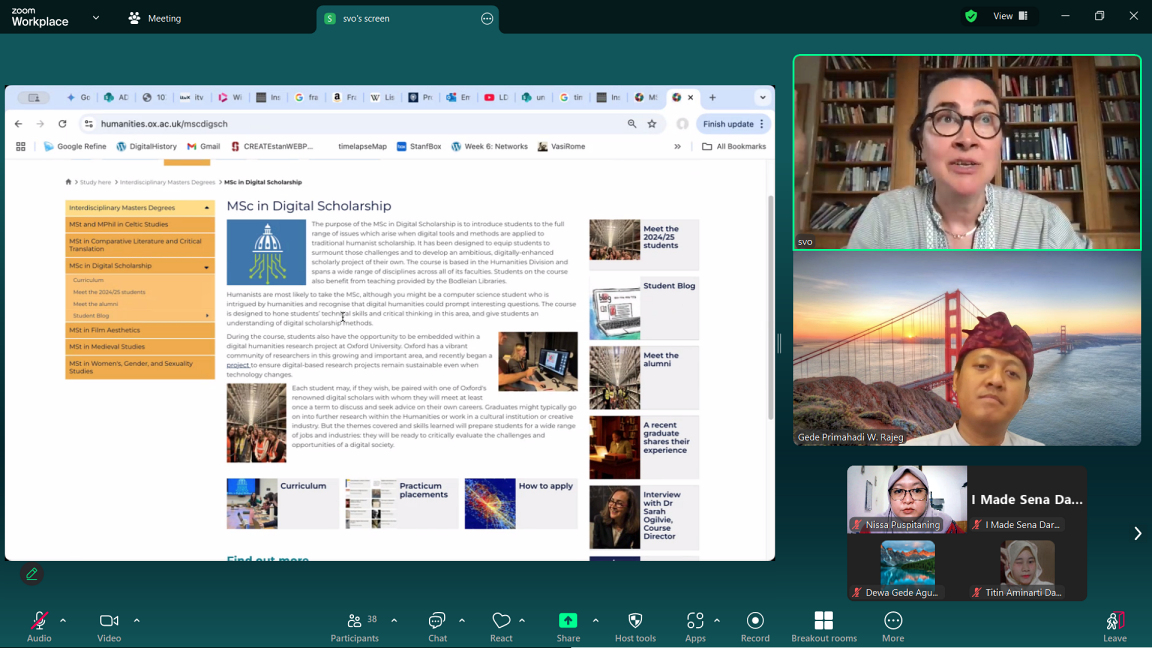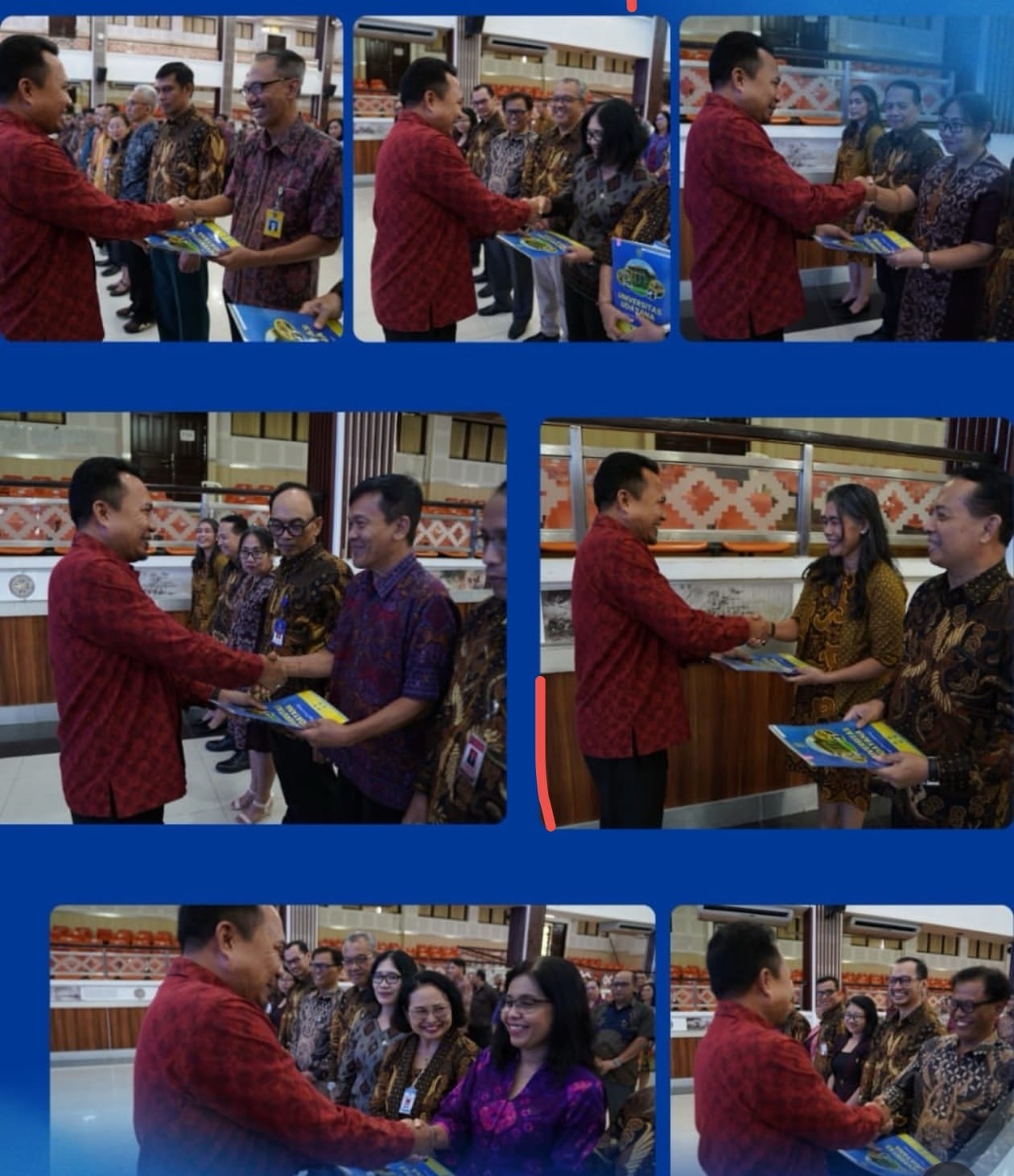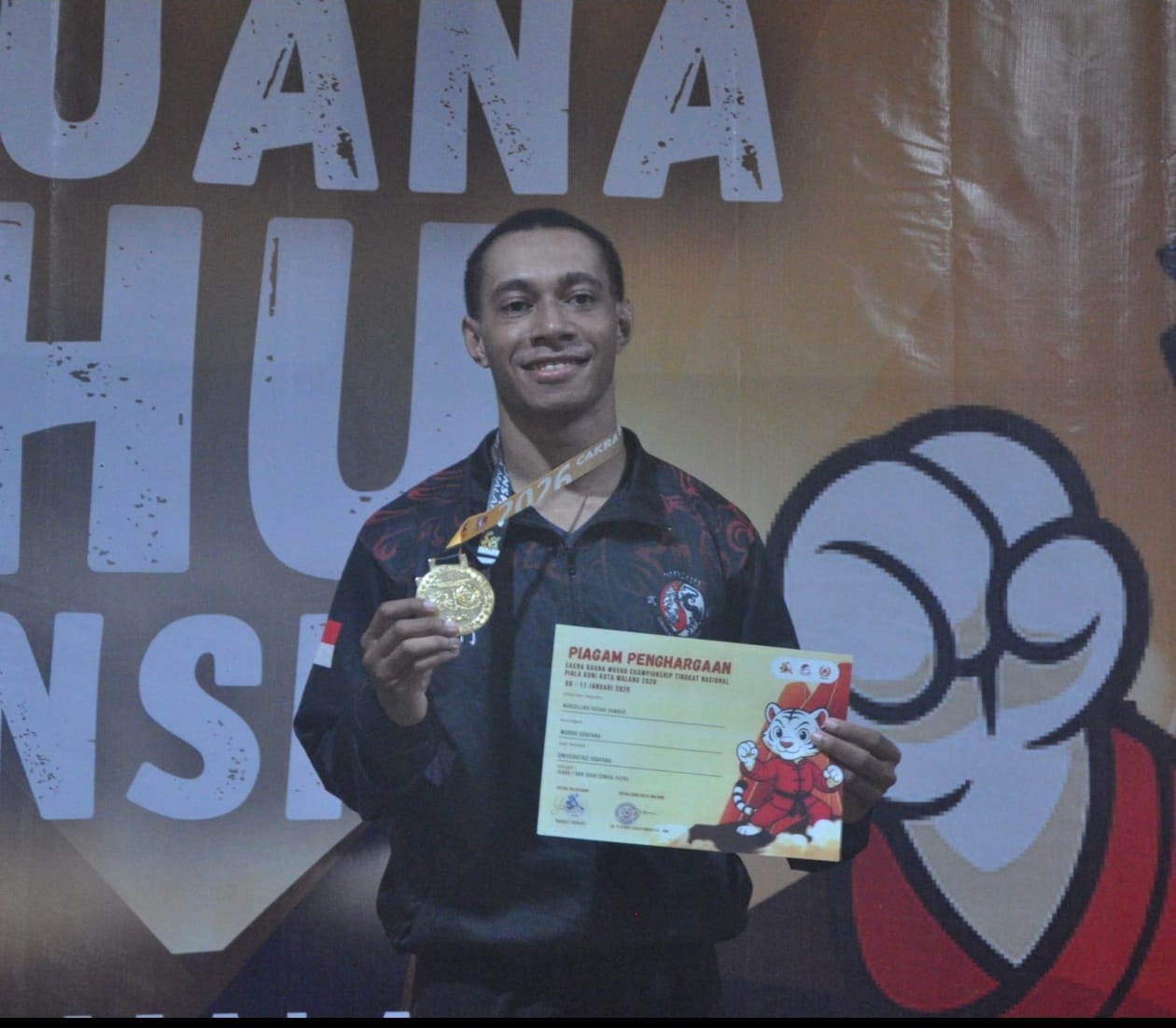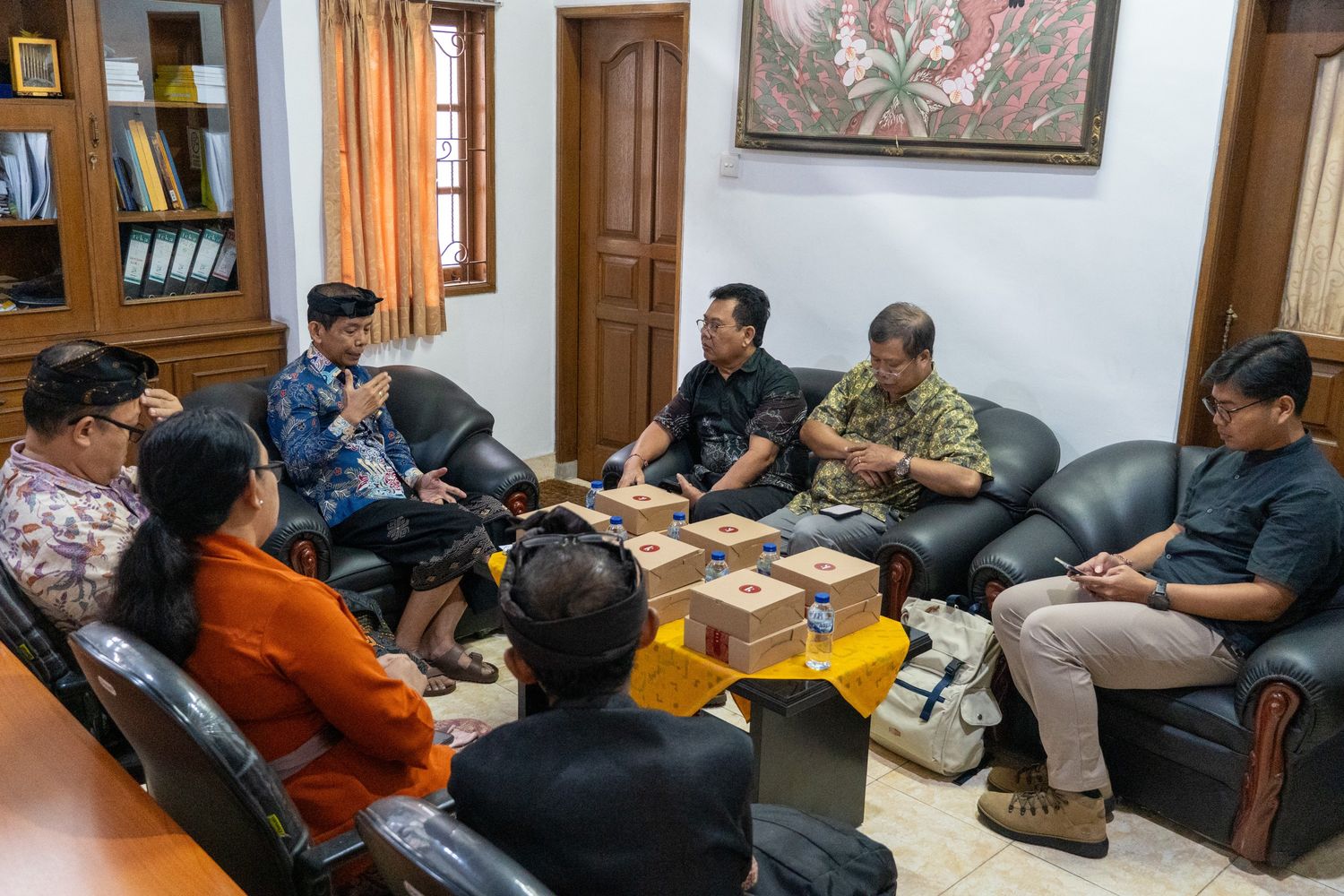Discussing Digital Innovation in Humanities, Faculty of Humanities, Udayana University Holds the 6th FIB DigiTalk
The Faculty of Humanities, Udayana University, once again held the 6th FIB DigiTalk which was held online through the Zoom Meeting platform, on Tuesday, July 1, 2025. This activity was held online through the Zoom Meeting platform and raised the topic "The Use of Digital Tools and Methods in the Humanities". This programme is part of the initiative to develop digital humanities studies which is actively initiated by FIB Unud to encourage cross-disciplinary collaboration in digital culture studies. The event was attended by lecturers and students of Udayana University and was opened by the Chairman of FIB DigiTalk 2025, Gede Primahadi Wijaya Rajeg, Ph.D.
The event continued with remarks from the Dean of the Faculty of Humanities, I Nyoman Aryawibawa, SS, MA, Ph.D. In his remarks, he explained that this activity was a concrete step by FIB in building an academic ecosystem that is adaptive to technological developments. FIB Digitalk this time presented a speaker, Dr. Sarah Ogilvie, an expert in linguistics and technology, as well as a Senior Researcher at the Faculty of Linguistics, Philology, and Phonetics, and serves as Director of the Digital Science Masters Program at Oxford. She has led various cross-disciplinary projects that combine linguistics, history, anthropology, and computer science.
With this background, Dr. Ogilvie also shared one of her experiences in building digital humanities programs at two prestigious institutions, Stanford University in the United States and the University of Oxford in the United Kingdom. She emphasized the importance of institutional flexibility in shaping the curriculum, suggesting that a strategic approach could be taken by embedding programmes into existing departments before forming stand-alone departments. Such a model has been successfully implemented at Stanford, where the humanities program is embedded in the English Department to ensure continuity and administrative support.
Furthermore, Dr. Ogilvie emphasised that digital humanities provides an opportunity for researchers to answer big questions that were previously impossible to answer using conventional methods. She then discussed a number of digital humanities projects from Oxford such as the digitisation of the Herculaneum scrolls, the 17th-century Letterlocking project, and the mapping of the correspondence networks of enlightenment scholars in the Republic of Letters project. She also highlighted how methods such as the TEI (Text Encoding Initiative) and the IIIF framework are being used to digitise and open up access to rare manuscripts such as the original manuscript of Mary Shelley's Frankenstein and the writings of Isaac Newton and Samuel Beckett.
One of her flagship projects was The Dictionary People, a book born from a digital project to identify global contributors to the first edition of the Oxford English Dictionary (OED). She also shared her experience in building a social media-based linguistic corpus to research the language of generation Z, a collaboration with Stanford University. She showed how the combination of NLP (Natural Language Processing) methods and social media data opened up new insights in language research. From the project, a corpus of 70 million words was obtained from various platforms such as Twitter, Reddit, 4chan, and Twitch. Then she analyzed how the younger generation created and used digital language. The results of this research were then published in the book Gen Z Explained.
Furthermore, Dr. Ogilvie emphasized that the main strength of digital humanities lies in the collaborative spirit and openness between fields/multidisciplinary. Through a creative, technology-based approach, researchers now have the means to explore archives, map global networks, and uncover stories that have been hidden. After the presentation session, it was continued with a question and answer session. The question and answer session was interactive. Several participants asked questions related to the application of technology in humanities studies. These questions were answered with statements from the speakers who emphasized the importance of the relevance of data to research questions, its collaborative potential, and the ultimate goal of disseminating knowledge.
Dr. Ogilvie concluded his presentation by emphasising that the humanities are not just about the use of technology, but about re-asking classic questions in the humanities in new ways. According to him, digital tools such as OCR, TEI, and tomography not only accelerate access to data but also open up possibilities for broader and more inclusive intellectual exploration. The event closed with the presentation of certificates to the speakers. Ultimately, the FIB DigiTalk 2025, which has been held for the sixth time by far, has become one of the media not only to strengthen FIB's position in the global conversation about digital cultural preservation, but this activity has become an important activity to expand the horizons of research and education in an era of rapid technological transformation (DD, AP, and FA).




UDAYANA UNIVERSITY